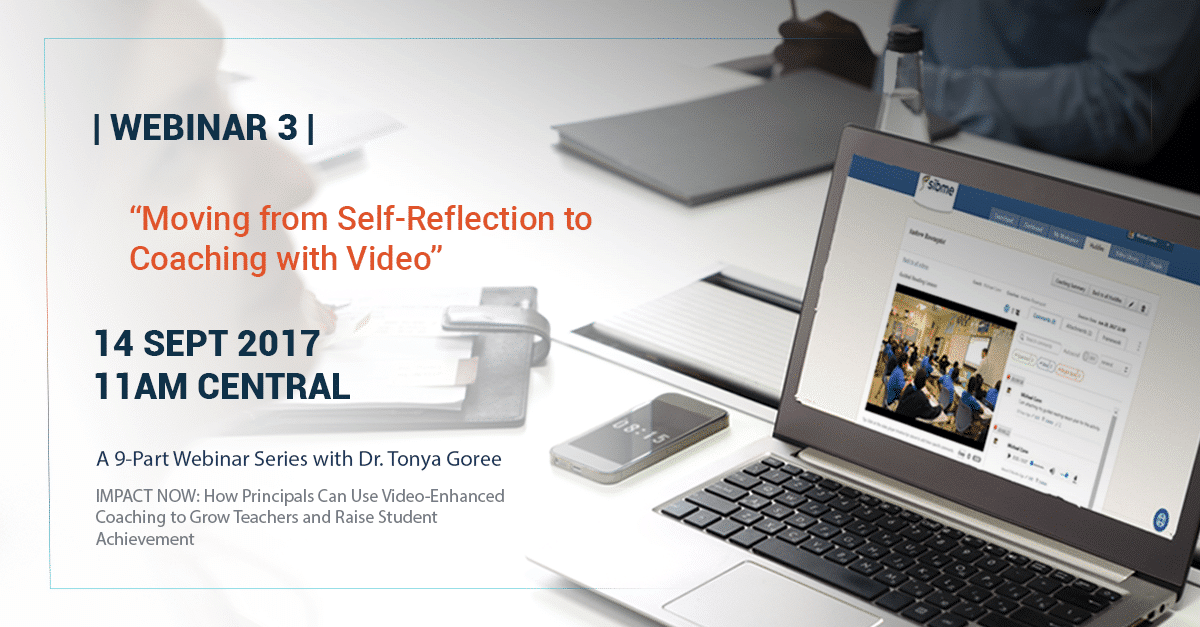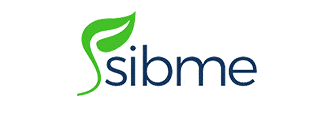Instructional Coaching Pre-Conferences Using Video — Sibme Notes from Webinar 3

Part 3 of our 9-part webinar series was September 14th. During the webinar Dr. Tonya Goree from Francone Elementary School discussed the ways in which she leverages teacher self-reflection to guide the goal setting process during Instructional Coaching Pre-Conferences. The power of choice is incredibly important, and allowing teachers to view themselves on video before a pre-observation conference sets teachers up for immediate growth.
This is part 3 in a 9-part series. Get access to all 9 videos in once place by clicking on the button below!
On-Demand AccessHere’s an overview of the discussion:
Guiding Questions for Self Reflection
Dr. Goree and Allyson reviewed the guiding questions teachers use during the self reflection cycle, which occurs before the pre-observation conference. Dr. Goree reiterated the importance of self-reflection as the single greatest factor in teacher improvement. Guiding questions give teachers an opportunity to align their self-reflection to campus goals. Additionally, by carefully crafting the questions teachers reflect on during the self-reflection cycle, you can ensure teachers are focused on the right things while watching themselves on video. You’ll also provide teachers the security they need to know you will not watch their videos before they are ready. Asking the right guiding questions is crucial to the success of step-1 in the pre conference: teacher self-reflection summary.
Participants also shared some of their own guiding questions. They generated these after watching webinar #2:
- Where do you wish you could have done better? Why?
- How did students respond to what you did and what response were you looking for?
Inspecting what you expect
Allyson and Dr. Goree explored how to use the Sibme Analytics Dashboard to “inspect what you expect” during the self-reflection cycle. It is important to assure teachers that their coaches and administrators will not watch the videos they upload during the self-reflection cycle. By using the analytics dashboard in Sibme, Dr. Goree is able to track that teachers are watching and reflecting on videos of their practice, without actually seeing the video itself. Teachers feel safe to record and watch themselves as they get used to being on video. Administrators are able to easily check accountability and make sure every teacher is recording and watching themselves on video before the pre-observation conference.
The Pre-Observation Conference
Dr. Goree uses a 4-step process during the pre-observation conference to make sure the first instructional coaching cycle with video is a success.
- Teacher Self-Reflection Summary: The teacher shares a brief summary of their reflection from the guiding questions they answered while watching themselves on video during cycle 1. This provides the context for the entire instructional coaching cycle and helps with step two…
- Setting Instructional Goals: The self-reflection summary guides the teacher to set 1-2 goals for the instructional coaching cycle. As the coach collects video and provides feedback during the coaching cycle, their focus will be on these goals. Dr. Goree insisted that, while a coach can help guide the teacher towards choosing these goals, the goals should be set by the teacher. During this step, the teacher and coach also discuss their vision for success with this goal and define specific parameters for success so both teacher and coach can agree on when the goal is met.
- Answer Questions and Calm Fears: This is a crucial step. It’s important to give teachers a chance to ask any questions they have about video-enhanced instructional coaching. This can be a fearful experience for a teacher, and its important at this step for the coach and teacher to build a trusting relationship and try and minimize any fear the teacher might experience about the process.
- Discuss the process and timeline: Dr. Goree gives teachers the opportunity to choose the schedule for when they will be videoed by their coach. They pick 1-2 options and encourage coaches to do everything possible to record on the teacher’s first choice. Coaches should then be completely clear on the process for recording, sharing, annotating, and reviewing video and what the next steps will be.
Webinar participants ranked key elements from the pre-video conference in order of importance:
-
The teacher/coach discussion of how success with the goals will be measured
-
The teacher establishing and sharing goals with the coach
-
Teachers completing their self-reflection summary
-
The teacher/coach meeting for a pre-observation conference
The instructional coaching pre-conference is a crucial part of the instructional coaching process using video. Dr. Goree and webinar participants agreed that this step can be easy to overlook, but is so important if you want to make sure teachers and coaches are on the same page before they begin reviewing video together.
This is part 3 in a 9-part series. Get access to all 9 videos in once place by clicking on the button below!
On-Demand Access

